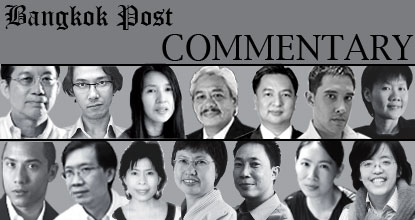
How do you feel when you see rows of stern-looking Buddhist monks marching through the streets in full force to call for violent treatment of the downtrodden?
That was what thousands of Myanmar monks did when they took to the streets in temple-studded Mandalay on Sunday to support the government's brutal persecution of stateless Muslim Rohingya.
What were they thinking?
The world is full of injustice. But isn't it the business of monks to advise against it, and not to be supportive of any form of prejudice and human cruelty?
Aren't empathy and non-exploitation the key words in Buddhism? Aren't monks supposed to devote their lives to deepening spiritual practice in order to see through the different layers of we-they prejudice so that compassion prevails in their hearts, words, and actions?
Many people outside Myanmar were asking these questions because the anti-Rohingya monks were the same ones who dared challenge the government in 2007 to champion the people's cause, and who themselves faced a violent crackdown by the military junta.
If the Buddha's words were not important to them when they took to the streets, then what was?
The answer is quite simple _ racist nationalism. The monks do want justice for people, but just for their own kind.
As part of the dominant ethnic Bama Buddhists, they believe deeply the dark-skinned Rohingya are illegal immigrants from Bangladesh, aggressive outsiders who will steal land from the Buddhist folk. The monks therefore feel that it is just to support the government to eliminate the perceived threats to their motherland, their ethnicity, and their religion.
Call it patriotism, ultra-nationalism, ethnic prejudice, or racism. Whichever the label, it is mired in the we-they prejudice that divides people, fosters hatred, and triggers violence _ everything Buddhism cautions against.
But should people who live in glass houses throw stones?
Our monks may still stop short of marching in the streets to call for the elimination of Malay Muslim separatists, but they have done so several times to call for a law which will help them retain supremacy over other religions.
Every time I cover their Buddhism-for-national-religion campaigns, I never fail to hear their deep suspicions of Islam. Meanwhile, bombs have blasted and killed people for eight years running in the restive South, yet we never hear our monks mentioning any concern about justice for the locals, nor for the need to open political space for Malay Muslims to voice their needs, address inequalities, and to extinguish the root causes of ethnic frustration and violence.
Instead, we see monks taking the defensive and dangerous route of ordaining soldiers to increase their number while allowing temples to be used as barracks.
Like their peers in Myanmar, our monks are in full support of the military to maintain the supremacy of the Buddhist majority. If violence must be used in this suppression, so be it.
But Thailand is also witnessing a rapid growth of lay Buddhism which focuses on meditation retreats and core Buddhist teachings. Can this movement act as a voice of sensibility when the country is mired in political divisiveness? If that's your expectation, be prepared to be disappointed.
For its members, too, generally share the belief that the elimination of perceived threats is necessary, like the need to eliminate germs and diseases to restore one's health. When this is your mindset _ left or right, red or yellow, pro-or anti-establishment _ you'll believe the use of hate speech, half truths, and violence by your camp is perfectly all right.
No, we are not Buddhists. We may pray to the Buddha and close our eyes to meditate, but what shapes our thoughts, words, and actions is ideological extremism of all different shades.
The Buddha's path leads to peaceful co-existence and sharing. Ideological extremism leads to control, suppression, and winner-takes-all.
If left to fester, ideological extremism and race-based nationalism will breed more violence. The country's goal of regional integration will be sheer nonsense. And for both monks and lay Buddhists, all those longs hours of meditation will be simply wasted.
Sanitsuda Ekachai is Assistant Editor, Bangkok Post.
